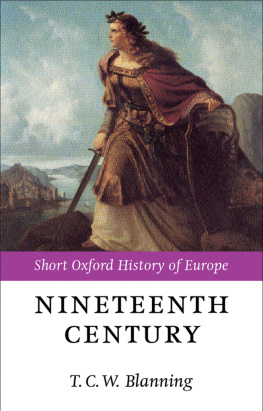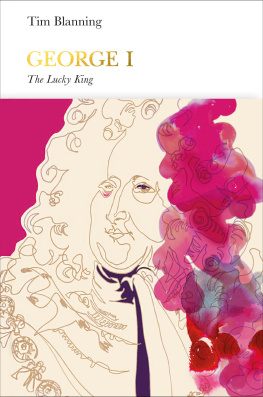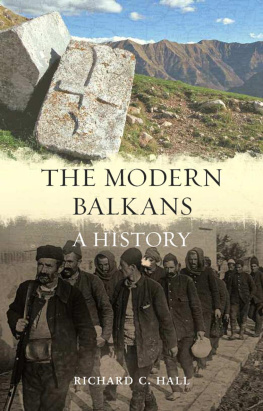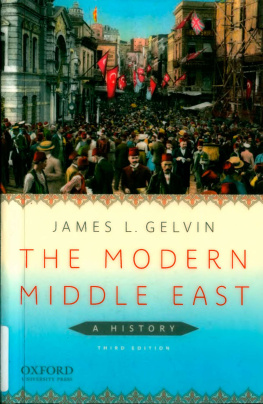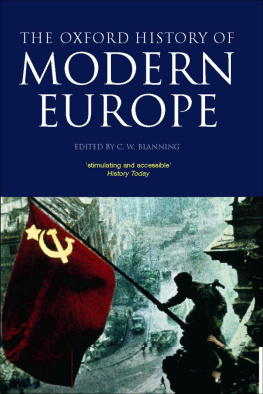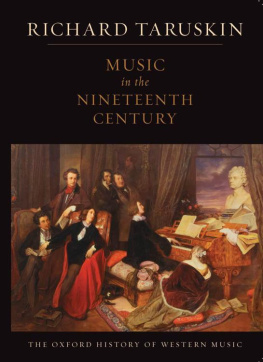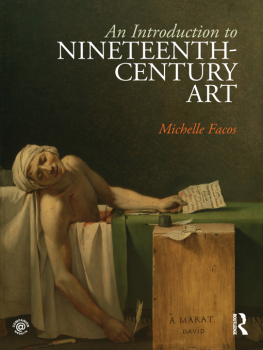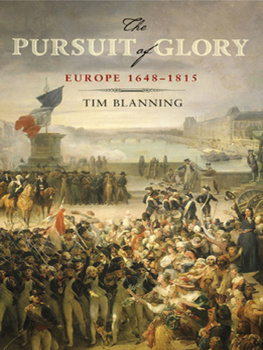Blanning - Nineteenth Century
Here you can read online Blanning - Nineteenth Century full text of the book (entire story) in english for free. Download pdf and epub, get meaning, cover and reviews about this ebook. year: 2000, publisher: Oxford University Press, genre: Politics. Description of the work, (preface) as well as reviews are available. Best literature library LitArk.com created for fans of good reading and offers a wide selection of genres:
Romance novel
Science fiction
Adventure
Detective
Science
History
Home and family
Prose
Art
Politics
Computer
Non-fiction
Religion
Business
Children
Humor
Choose a favorite category and find really read worthwhile books. Enjoy immersion in the world of imagination, feel the emotions of the characters or learn something new for yourself, make an fascinating discovery.
Nineteenth Century: summary, description and annotation
We offer to read an annotation, description, summary or preface (depends on what the author of the book "Nineteenth Century" wrote himself). If you haven't found the necessary information about the book — write in the comments, we will try to find it.
Nineteenth Century — read online for free the complete book (whole text) full work
Below is the text of the book, divided by pages. System saving the place of the last page read, allows you to conveniently read the book "Nineteenth Century" online for free, without having to search again every time where you left off. Put a bookmark, and you can go to the page where you finished reading at any time.
Font size:
Interval:
Bookmark:
The Short Oxford History of Europe
The Nineteenth Century
The Short Oxford History of Europe
General Editor T. C. W. Blanning
NOW AVAILABLE
The Eighteenth Century
edited by T. C. W. Blanning
The Nineteenth Century
edited by T. C. W. Blanning
IN PREPARATION, VOLUMES COVERING
Classical Greece
The Romans
The Early Middle Ages
The High Middle Ages
The Late Middle Ages
The Sixteenth Century
The Seventeenth Century
The Early Twentieth Century
The Later Twentieth Century
The Short Oxford History of Europe
General Editor T. C. W. Blanning
Europe 17891914
Edited by T. C. W. Blanning


Great Clarendon Street, Oxford OX2 6DP
United Kingdom
Oxford University Press is a department of the University of Oxford. It furthers the Universitys objective of excellence in research, scholarship, and education by publishing worldwide. Oxford is a registered trade mark of Oxford University Press in the UK and in certain other countries
Oxford University Press 2000
The moral rights of the author have been asserted
First published 2000
Reprinted 2013
All rights reserved. No part of this publication may be reproduced, stored in a retrieval system, or transmitted, in any form or by any means, without the prior permission in writing of Oxford University Press, or as expressly permitted by law, by licence or under terms agreed with the appropriate reprographics rights organization. Enquiries concerning reproduction outside the scope of the above should be sent to the Rights Department, Oxford University Press, at the address above
You must not circulate this work in any other form and you must impose this same condition on any acquirer
British Library Cataloguing in Publication Data
Data available
Library of Congress Cataloging in Publication Data
Data available
ISBN 978-0-19-873135-1
The problems of writing a satisfactory general history of Europe are many, but the most intractable is clearly the reconciliation of depth with breadth. The historian who can write with equal authority about every part of the continent in all its various aspects has not yet been born. Two main solutions have been tried in the past: either a single scholar has attempted to go it alone, presenting an unashamedly personal view of a period, or teams of specialists have been enlisted to write what are in effect anthologies. The first offers a coherent perspective but unequal coverage, the second sacrifices unity for the sake of expertise. This new series is underpinned by the belief that it is this second way that has the fewest disadvantages and that even those can be diminished if not neutralized by close co-operation between the individual contributors under the directing supervision of the volume editor. All the contributors to every volume in this series have read each others chapters, have met to discuss problems of overlap and omission, and have then redrafted as part of a truly collective exercise. To strengthen coherence further, the editor has written an introduction and conclusion, weaving the separate strands together to form a single cord. In this exercise, the brevity promised by the adjective short in the series title has been an asset. The need to be concise has concentrated everyones minds on what really mattered in the period. No attempt has been made to cover every angle of every topic in every country. What this volume does provide is a short but sharp and deep entry into the history of Europe in the period in all its most important aspects.
T. C. W. Blanning
Sidney Sussex College
Cambridge
T. C. W. Blanning
Robert Tombs
Colin Heywood
Niall Ferguson
James J. Sheehan
Paul W. Schroeder
A. G. Hopkins
T. C. W. Blanning
T. C. W. BLANNING is Professor of Modern European History at the University of Cambridge and a Fellow of Sidney Sussex College. He is also a Fellow of the British Academy. His recent works include Joseph II (1994), The French Revolutionary Wars 17871802 (1996), and The French Revolution: Class War or Culture Clash? (1997). He has also edited The Oxford Illustrated History of Modern Europe (1996) and The Rise and Fall of the French Revolution (1996); as well as (with David Cannadine) History and Biography: Essays in Honour of Derek Beales (1996) and (with Peter Wende) Reform in Great Britain and Germany 17501850 (1999).
NIALL FERGUSON is Fellow and Tutor in Modern History at Jesus College, Oxford. His books include Paper and Iron: Hamburg Business and German Politics in the Era of Inflation 18971927 (1995), The Pity of War (1998), and The Worlds Banker: The History of the House of Rothschild (1998). He has also edited the best-selling collection of essays Virtual History: Alternatives and Counterfactuals (1997).
COLIN HEYWOOD is Senior Lecturer in Economic and Social History at the University of Nottingham. His publications include Childhood in Nineteenth-Century France (1988) and The Development of the French Economy (1995). He is currently working on a history of childhood, and a study of the town of Troyes in the nineteenth century.
A. G. HOPKINS is Smuts Professor of Commonwealth History at the University of Cambridge and a Fellow of Pembroke College. He is also a Fellow of the British Academy. His publications include An Economic History of West Africa (1973) and (with P. J. Cain) British Imperialism: Innovation and Expansion 16881914 and British Imperialism: Crisis and Deconstruction 19141990 (1993).
PAUL W. SCHROEDER is Professor Emeritus of History and Political Science at the University of Illinois. He is the author of several books and many articles on the history and theory of European and world international politics. His most recent work is The Transformation of European Politics 17631848 (1994), a volume in the Oxford History of Modern Europe series.
JAMES J. SHEEHAN is Dickason Professor in the Humanities at Stanford University. Among his numerous publications on German history are German Liberalism in the Nineteenth Century (1978) and the classic German History 17701866 (1990). His history of German art museums is forthcoming.
ROBERT TOMBS is Reader in French History at Cambridge and a Fellow of St Johns College, Cambridge. His books include France 18141914 (1996) and The Paris Commune 1871 (1999).
T. C. W. Blanning
Europe changed more rapidly and more radically during the nineteenth century than during any prior period. Perhaps most fundamentally, its population more than doubled, from 205 million in 1800 to 414 million in 1900, not counting the 38 million who emigrated to other parts of the world in the course of the century. The economy grew even faster, as the per capita Gross National Product (GNPi.e. the total economic output for every European) increased by 120 per cent between 1830 and 1913. More visible to contemporaries than the apparently modest rates of annual growth that underlay this secular figure was the communications revolution. In 1800 the wealthy travelled by horse-drawn carriage and the poor walked; in 1900 the wealthy travelled first class on the railway or were driven in their own automobiles, while the poor travelled third class on the railway and by omnibus, tram, or underground railway. The first Paris Metro line opened in 1900, carrying 15 million passengers in its first year of operations (a figure that had increased twentyfold by 1909). On 17 December 1903 the first flight by a powered aircraft pointed the way to an even more revolutionary acceleration in the pace of travel. Messages had long been travelling above ground, thanks to the invention of the telegraph in the 1830s and the telephone in the 1870s. The more earth-bound written word was also spread further and faster than ever before, as the mechanized printing presses and even the penguins of the Antarctic had to acknowledge their sway. No wonder that the French poet Charles Pguy could write in 1914 that the world had changed more since he started going to school in the 1880s than during the two previous millennia.
Next pageFont size:
Interval:
Bookmark:
Similar books «Nineteenth Century»
Look at similar books to Nineteenth Century. We have selected literature similar in name and meaning in the hope of providing readers with more options to find new, interesting, not yet read works.
Discussion, reviews of the book Nineteenth Century and just readers' own opinions. Leave your comments, write what you think about the work, its meaning or the main characters. Specify what exactly you liked and what you didn't like, and why you think so.

